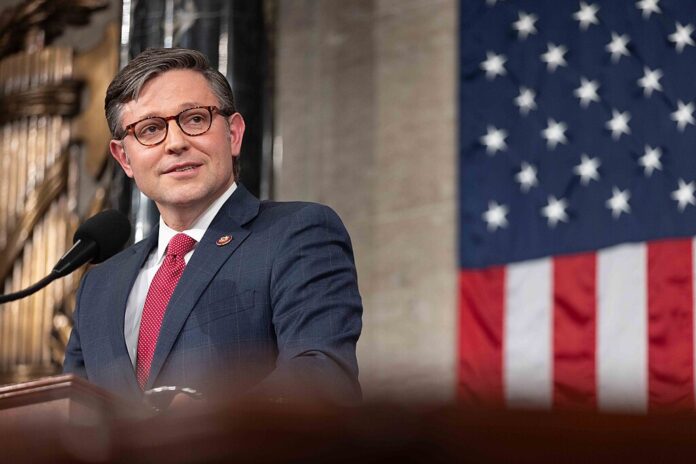After tense negotiations with GOP centrists, Mike Johnson secures a narrow win on $9.4 billion doge cuts
In a dramatic showdown on Capitol Hill, House Republicans narrowly pushed through a $9.4 billion package of DOGE spending cuts after tense, last-minute negotiations that saw two GOP centrists flip their votes under pressure.
Speaker Mike Johnson faced the real prospect of defeat as the closely divided House appeared ready to reject the cuts. But with the vote still open, Johnson pulled aside New York Representative Nick LaLota, who had initially voted against the measure. After several minutes of private conversation, LaLota reversed his vote, breathing life into the bill. His colleague, Rep. Mike Lawler, also changed his position following the huddle with the Speaker.
While LaLota declined to reveal details of his conversation with Johnson, he hinted it related to his long-standing demands for state and local tax (SALT) breaks—a thorny issue that continues to complicate President Donald Trump’s broader tax and spending agenda in the Senate.
Embed from Getty Images“I had some conversations with the Speaker that raised my level of confidence that will put this and future issues in the right trajectory,” LaLota told CNN, without offering specifics.
The vote exposed the GOP’s delicate balancing act as it attempts to satisfy both conservative hardliners and moderates from swing districts. The spending package, which cuts funding for foreign aid and public broadcasting, marked Congress’s first formal vote on Elon Musk’s DOGE cuts, touching sensitive programmes like PBS and the Bush-era PEPFAR global AIDS initiative.
For centrist Republicans, cutting funds to these popular programmes proved politically challenging. Several had to be heavily lobbied by House leaders and White House officials to fall in line behind Trump’s plan. Ultimately, four Republicans—Brian Fitzpatrick (Pennsylvania), Nicole Malliotakis (New York), Mike Turner (Ohio), and Mark Amodei (Nevada)—voted against the bill.
Two others—LaLota and Nebraska’s Don Bacon—initially opposed the measure but switched their votes at the eleventh hour, giving Johnson just enough support to pass the bill. Their reversal prompted immediate scepticism from the party’s right flank. Texas Representative Chip Roy questioned on X: “How expensive were the 2 original no votes who flipped to yes?”
The spending cuts aim to claw back previously approved federal funds through a rarely used manoeuvre known as “rescissions.” If passed by the Senate, the package, though modest compared to the $1 trillion promised by the Department of Government Efficiency, would shield the Trump administration from legal challenges over its federal funding cuts.
Senate approval remains far from certain. Only 51 Republican votes are needed under reconciliation rules, but key GOP senators, including Susan Collins, chair of the Senate Appropriations Committee, have expressed misgivings. Collins told CNN she’s seeking amendments: “I think we can change it. We’re still figuring out what the set rules are.”
Public broadcasting networks PBS and NPR, both targeted for cuts, have already mobilised opposition in the Senate. PBS stands to lose $1.1 billion in future funding for the Corporation for Public Broadcasting if the bill becomes law.
“The fight to protect public media does not end with this vote,” PBS CEO Paula Kerger declared. “We will continue to make the case for our essential service in the days and weeks to come.” PBS quickly updated its website’s call to action after the vote, urging viewers: “Contact your senators now.”
The bill’s passage marks a partial victory for Trump and Johnson but leaves them facing a far more complicated battle in the Senate, where the ideological divides within the GOP are poised to take centre stage once again.
